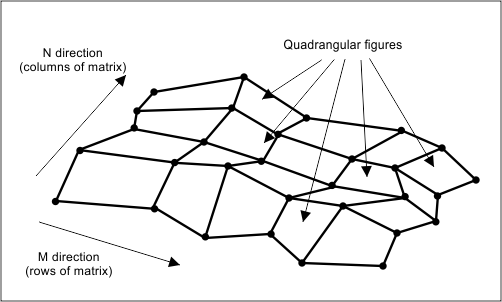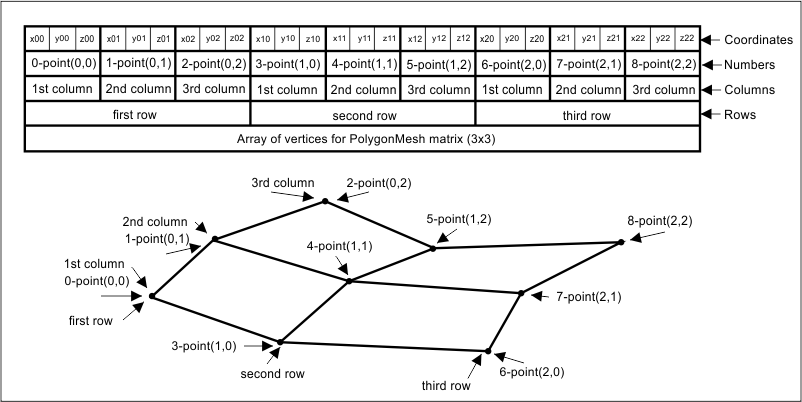A polygon mesh is an entity representing a surface defined by a set of 3D vertices
forming an M*N array, where M is the count of rows and N is the count of columns.
The surface consists of quadrangular figures, each formed by four vertices:
(m, n)
(m, n+1)
(m+1, n+1)
(m, n+1)
It can be open or closed in both directions. Each vertex is specified by three
coordinates (x, y, z) in WCS. Each quadrangular figure is constructed from four
vertices so that its edges are joined with edges of another figure in the matrix.
All polygon meshes have at least two, three, or four adjacent edges with other
meshes.

The array of vertices stores the three-dimensional coordinates of points, which forms the set of vertices. Each point requires three doubles as its coordinates. An array's points are placed in order of the increasing number of rows and columns. The array first stores the points of the first row, then the points of the second row, then the points of the third row, and so on. The points of each column are stored in order, that is, first a point of the first column, then a point of the second column, and so on. For example, a polygon mesh of matrix (3 x 3) can be specified as follows:

For working with a polygon mesh, use the OdDbPolygonMesh class, which represents a three-dimensional polygon mesh and allows users to access the polygon mesh entity and manipulate its properties. The OdDbPolygonMeshPtr class is the typified smart pointer to an instance of this entity, and it is used for storing and passing references to the polygon mesh objects.
The three-dimensional vertex object is represented by the OdDbPolygonMeshVertex class, which provides users to access a three-dimensional vertex entity and manipulate its properties. The OdDbPolygonMeshVertexPtr class is the typified smart pointer to an instance of this entity, and it is used for storing and passing references to the vertex objects.
To create and initialize a new instance of polygon mesh entity, see Overview of Specific Entities.
See Also
Types of Polygon Meshes and Vertices
Specific Properties of Polygon Meshes